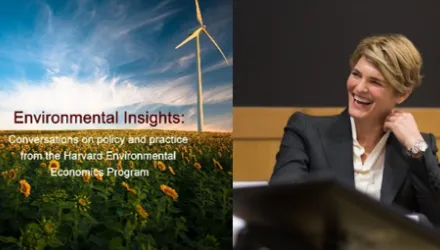Summary
China has pledged that its carbon emissions will peak by 2030, but without major policy changes, meeting this target will be challenging. A strategy for achieving the goal is presented by Zhu Liu and colleagues in a Comment piece in Nature.
China is the world's largest emitter of carbon dioxide, accounting for one-quarter of the global total in 2013. Although the country has successfully lowered the rate of emissions from industry in some cities through improved technology and energy-efficiency measures, rapid economic growth means that more emissions are being added than removed. Without mitigation, China's CO2 emissions will rise by more than 50% in the next 15 years.
Reversing that trend will be hard, but it is feasible if China follows best practices in low-carbon development, the authors argue. They outline four steps that could enable China to meet its carbon emissions goal. The country must: define and strengthen regional emissions targets such that more affluent regions decarbonize first and developing ones have more leeway; improve the reporting and verification of emissions data; implement, regulate and supervise a nationwide emissions-trading market; and incentivize the uptake of green technologies, especially in underdeveloped regions. "We call on China's leaders to be bold and create a low-carbon economy that will benefit the country and the globe," the authors conclude.
Read the full text here (log in may be required): http://www.nature.com/news/climate-policy-steps-to-china-s-carbon-peak-1.17750
Liu, Zhu, Dabo Guan, Scott Moore, Henry Lee, Jun Su and Qiang Zhang. “Steps to China's Carbon Peak.” Nature, June 18, 2015











